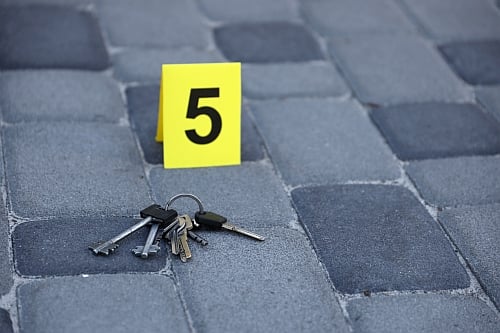Physical evidence plays a significant role in the judicial process for the defense and prosecutors alike. However, any experienced criminal defense attorney would tell you it is possible to be convicted without physical evidence present.
Here is an overview of several other types of evidence that the prosecution could present during a criminal trial.
Digital Evidence
In today’s digital age, a substantial amount of potentially admissible evidence can be found within computer hard drives, e-mail inboxes, social media feeds, messaging platforms, and the cloud. There have even been criminal cases that relied on data retrieved from GPS-capable smartwatches, AI assistants, and video game consoles.
However, an attorney or investigator must proceed cautiously when focusing on digital evidence. There are several key steps involved with the appropriate collection and preservation of any digital evidence used in order to prove and maintain the authentication and integrity of those materials.
Voluntary Confessions or Statements
A confession or statement from a defendant indicating that he or she committed the crime is a significant type of evidence used in any criminal case. The confession is typically put in writing either by a stenographer, law enforcement officer, or the defendant themselves. The statement is later read and signed by the defendant.
A confession is inadmissible if it was involuntary, coerced, or made under a state of duress.
Reliable Testimony From Credible Eyewitnesses
The testimonies of credible eyewitnesses also play key roles in either side of a criminal case or trial. Testifying that they saw the defendant participate in or commit the crime in question is considered admissible in any U.S. court of law. The credibility of the witness making the testimony would then likely become a primary target for the opposing legal counsel.
Keep in mind that credibility and reliability are not synonymous in this regard.
- Credibility correlates to a person’s truthfulness.
- Reliability focuses on the accuracy of their testimony.
A credible witness could still possibly give an unreliable testimony simply due to its inaccuracies. Conversely, the background or testimony of a reliable witness may bring their credibility into question.
Expert Witness Testimony
An expert witness may be used to provide specialized knowledge that can prove to be valuable in a criminal case. This is especially helpful when the topics discussed or analyzed during the case are difficult to understand for the average juror or judge. For example, a blood splatter analyst could serve as an expert witness to testify about an alleged murder weapon.
Social workers, doctors, psychiatrists, and other industry professionals are also considered expert witnesses depending on the nature of the case. The Federal Rule of Evidence 702 requires all expert testimonies to consist of technical, scientific, or other types of specialized knowledge that will help the jury understand the evidence presented or determine any fact in issue.
The court first reviews the expert testimony away from the jury to determine if it is admissible by examining if the theory presented has been tested, subjected to publication or peer review, and whether it is accepted or rejected by the relevant scientific community.
The Presence of Circumstantial Evidence
“Circumstantial evidence” can be used by the prosecution in a criminal trial. By definition, this indirect evidence cannot prove a fact in issue. However, it can be used to logically infer that the fact in question exists. For example, suspicious timing of events, prejudiced or malevolent ill will (also known as “personal animus”), and ambiguous statements can be used as circumstantial evidence.
A person’s criminal history could even be presented as admissible evidence to show identity, motive, intent, or the absence of an accident or mistake. Circumstantial evidence is not the “smoking gun” needed to determine the outcome of a case by itself. However, it can be skillfully used to complement some of the other types of evidence referenced above.
Choose a Skilled Attorney to Defend You!
As an experienced defense lawyer, Ashaley Boatwright has a wealth of knowledge in the identification, preservation, and presentation of various types of evidence used in numerous criminal cases. He will work tirelessly to protect your rights both behind the scenes and in the courtroom.
If you have been charged with a crime in Greenville or Clemson, SC, contact Boatwright Legal today to schedule your free case evaluation.






